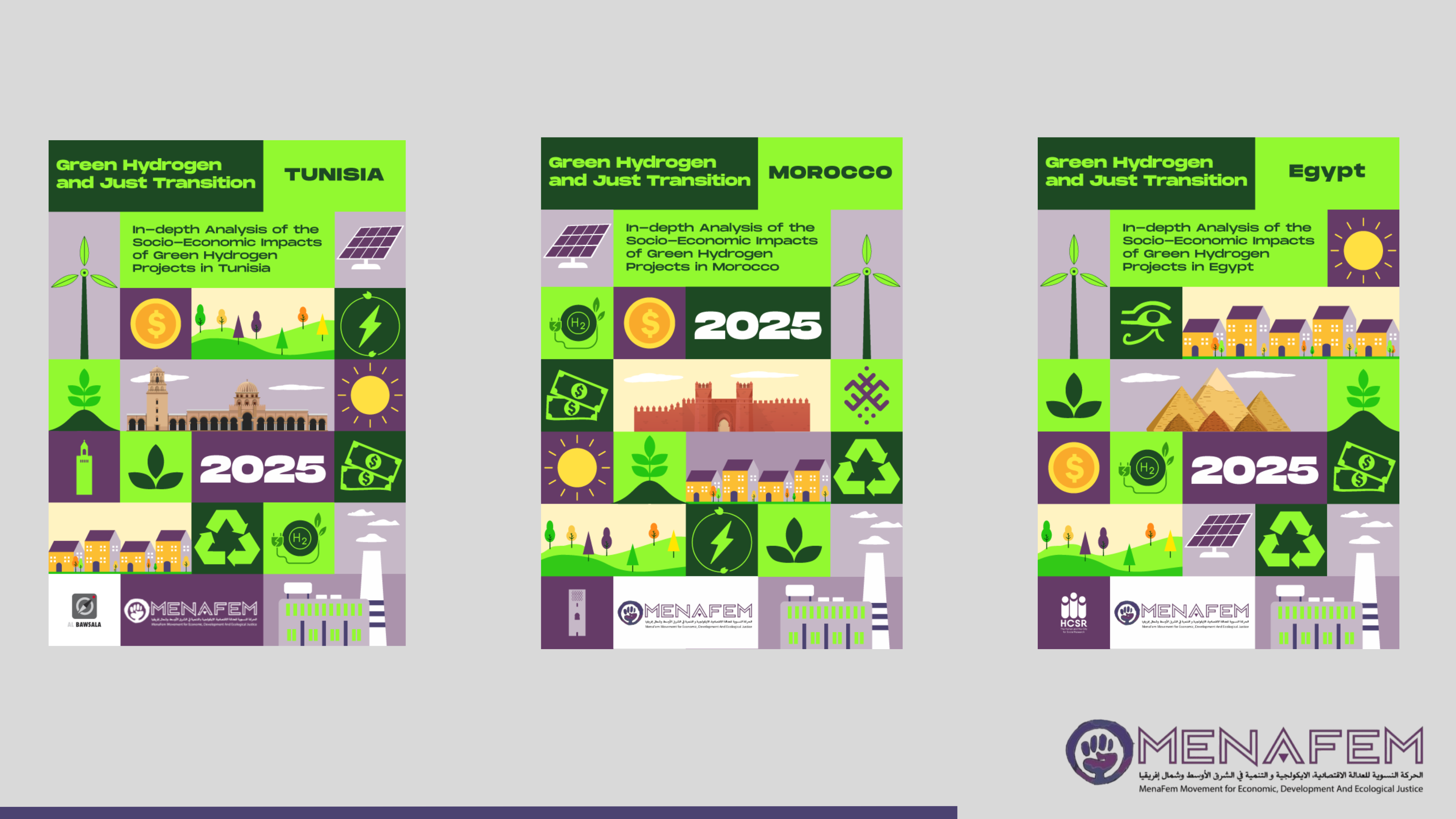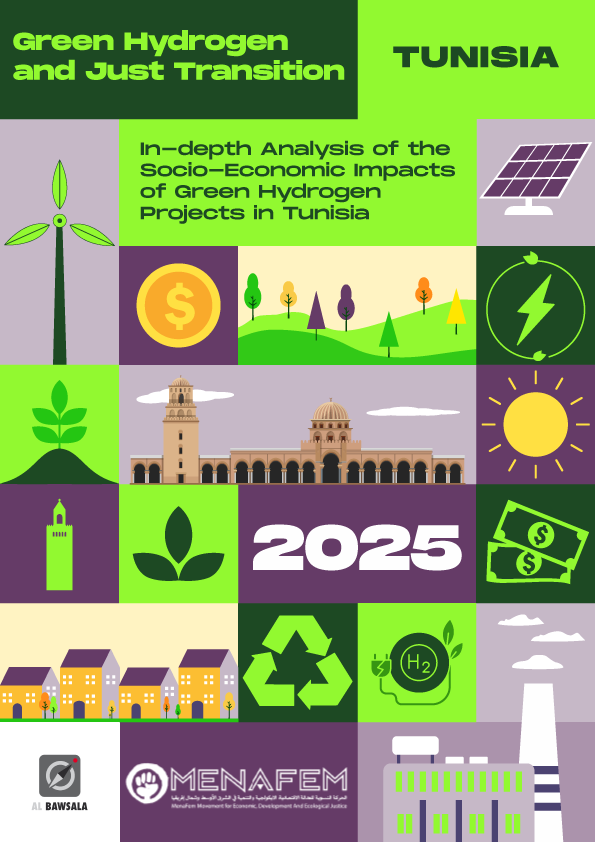Launching the Socio-Economic Analysis Series for Green Hydrogen Projects in North Africa
As green hydrogen gains prominence as a part of the global energy transition and climate strategy, it is increasingly promoted across North Africa through international frameworks such as the European Union’s Global Gateway initiative. While these projects are often celebrated for their technological and environmental promise, their implications for frontline communities, gender equity, environmental justice, and inclusive development remain under-explored. At a time of urgent need for climate action and a just energy transition, it is critical to assess the social, environmental, and developmental impacts of these investments. There are serious concerns about the actual development potential this strategy offers to so-called “partner” states, particularly as the Global Gateway’s approach overlooks evidence that essential investments—such as universal public services and social infrastructure—are often unprofitable and therefore risk being sidelined. Moreover, the European Court of Auditors has questioned the effectiveness of these financing tools in meeting the EU’s development objectives, their ability to truly mobilize investments, and their additionality. In response to this new fuel, the MENAFem Movement for Economic Development and Ecological Justice, in collaboration with researchers and experts from Tunisia, Egypt, and Morocco, is launching a critical series of analysis papers which explore the social, economic, and ecological impacts of green hydrogen initiatives in North Africa from a people-centered perspective.





